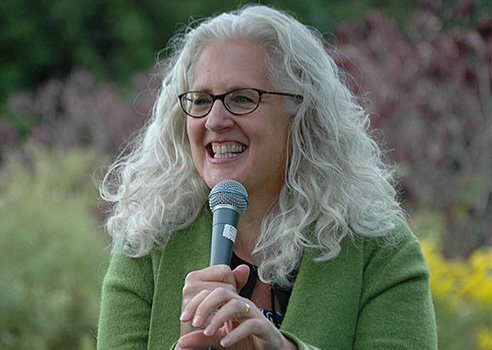Word count: 783 words
Reading time: About 3 minutes
Here is another in my series of interviews with writers. Today, I introduce you to fiction writer Kate Pullinger, author of the fascinating novel The Mistress of Nothing….
A few weeks ago when you saw the list of books I read in 2010, you might have noticed The Mistress of Nothing. I really enjoyed this novel, which I felt would make a terrific movie. (I see a young Emma Thompson in the title role as a young maid — although her age suggests otherwise!)
I don’t generally read a lot of historical fiction, and, generally, I enjoy even less. But I found this book lyrically written and thoroughly engaging. When the chance sprang up to interview the London-based author, Kate Pullinger, who was coming to Vancouver for a Writers Festival, I leaped at it! In addition to being a skilled writer, she is also persistent (12 years to write a novel!) and charming (I love her line about Prince Phillip.)
The book is just recently available in the U.S.
Can you briefly describe your writing day (how much time do you spend at it; where do you do it?)
I’m lucky enough that two years ago I built a fantastic office at the end of our garden. Before that I’d only had a corner of a room. On average, I probably spend four days a week in that office. At the moment I’m really battling with the distractions provided by the Internet and I seem to be going through a bad phase of allowing myself to be distracted.
Tell me about your life as a digital fiction author. How did you get involved in that and how is the whole operation financed? I was able to read/watch Inanimate Alice for free and without viewing any ads, which puzzled me.
I’ve been involved with these kinds of digital experiments for years because, nearly a decade ago, I was invited to do a year-long research fellowship on digital storytelling. [Subsequently,] this work has been financed in different ways. Inanimate Alice has a private backer — he’s currently trying to find a business model for it. On commission, I’ve also recently created nine multimedia stories for use in the classroom. The business model, which is not entirely clear yet, is very different from trade book publishing.
Okay, going back to trade publishing, roughly how many words is your novel, The Mistress of Nothing, and how long did it take you to write it?
I think it’s between 75,000 and 80,000 words. It took me 12 years. This is because I abandoned it several times and wrote other books.
Was this your most difficult book to write? And why?
Absolutely! I’d never written a fully-fledged historical novel before and was a bit daunted by it. A lot of historical fiction isn’t to my taste so I had to figure out how to do it. As well, the research was a huge task. I knew nothing about Egypt in the 19th century. I also had problems because I was dealing with real people. I didn’t realize ’til very late in the process that it needed to be written in the first person.
I see you’ve been a writer in residence a various prisons. What lessons about writing do you think that prisoners have to teach us?
The interesting thing about prisons is that they’re places packed full of stories. But more often than not, prisoners don’t want to write about prison. They want to write as a way of taking themselves out of the prison environment. I think we all write and read in order to remove ourselves from our daily reality — whether it’s because the daily reality is dull, as is the case with me, or whether it’s because it’s a place you want to escape from, which is the case with prisoners.
On your blog you have an amusing clip about Prince Philip telling you he doesn’t like novels because he could do so much better himself. If you’d had the opportunity how would you have replied to him?
I think I’d say: “go ahead.” All publishers would jump at the chance of having a book from Prince Philip!
What do you do to motivate yourself when you really, really, don’t feel like writing?
I find getting away from the desk and doing something like going to an exhibition or getting physical exercise or cooking are all good ways to get out of a slump. When things are going really badly the key is to step away from the desk.
Can you name one other author you really like to read?
What do you particularly like about his/her work? There are so many! One is Canadian author Alistair MacLeod. I really love his short stories. There’s something about his authorial voice that I really admire. I wish I could write like him!


